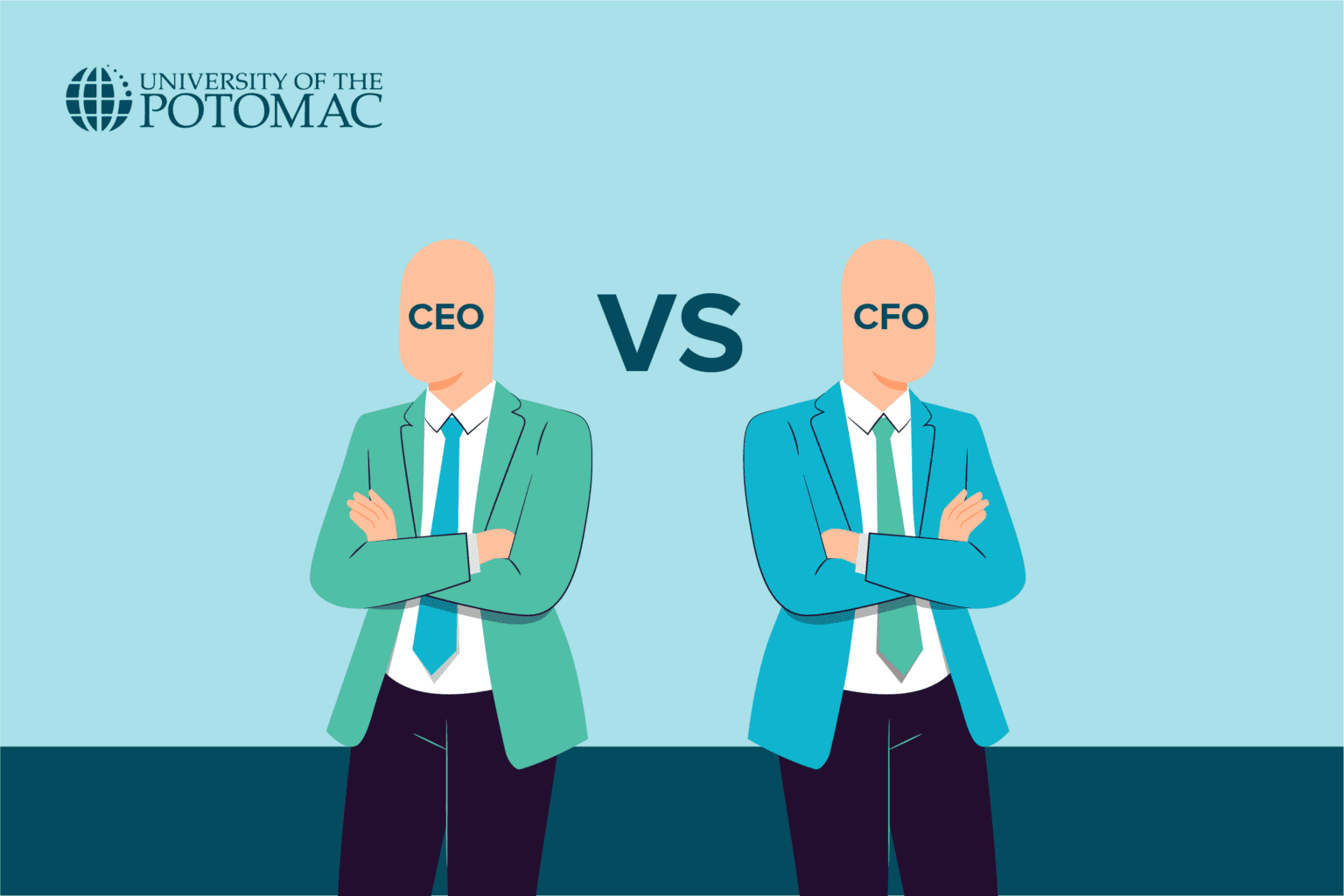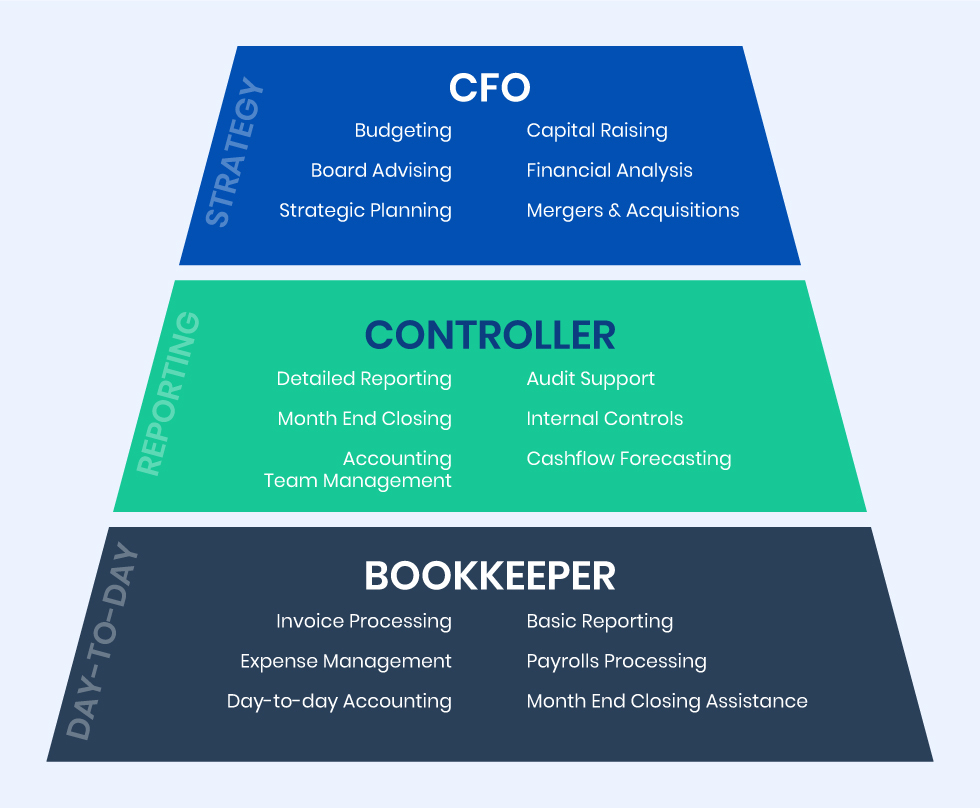Fun Info About What Is The Salary Of A Controller Vs CFO

CEO Vs. CFO Roles, Qualifications, Salary
Controller vs. CFO Salary Showdown
1. Understanding the Core Roles
So, you're curious about the financial leadership landscape and want to know who gets paid more: the Controller or the CFO? Well, you've come to the right place! Let's break down these roles, their responsibilities, and, most importantly, their potential earnings.
Think of the Controller as the financial gatekeeper — the person who ensures accuracy, compliance, and everything runs smoothly behind the scenes. They're deep in the day-to-day accounting operations, making sure the books are balanced and financial reports are squeaky clean. They're the reliable, detail-oriented member of the finance team, often burning the midnight oil to meet deadlines (and maybe fueled by copious amounts of coffee).
On the other hand, the Chief Financial Officer (CFO) is the big-picture strategist. Theyre not just crunching numbers; theyre analyzing trends, forecasting future performance, and advising the CEO on financial strategy. Theyre less about the daily grind of accounting and more about the long-term financial health and growth of the company. They're the ones presenting to the board of directors, negotiating deals, and basically being the financial guru everyone looks to for guidance. They usually have a bigger office, too. Just sayin'.
In short, the Controller is the master of financial accuracy and compliance, while the CFO is the architect of financial strategy and vision. Both are vital, but their responsibilities and the impact of those responsibilities directly influence their compensation. Consider it like this: a controller is a fantastic, experienced construction worker, while the CFO is the project manager who knows how to get the whole building done.

Salary Showdown
2. Factors Influencing Compensation
Alright, let's get down to brass tacks: the salary. While there's no one-size-fits-all answer, generally speaking, the CFO tends to command a higher salary than the Controller. Why? Because they typically have more experience, more responsibility, and a wider scope of influence within the organization. But don't count the Controller out just yet!
Several factors influence the salary of both Controllers and CFOs. These include company size (a CFO at a Fortune 500 company will likely earn significantly more than one at a small startup), industry (tech companies often pay more than non-profits), location (salaries tend to be higher in major metropolitan areas), and, of course, experience and qualifications (an MBA or CPA can significantly boost earning potential). Your negotiation skills also play a part. It's a job, not a sprint, but a marathon!
The complexity of the role also matters. A CFO at a company undergoing a major acquisition or expansion will likely be compensated more handsomely for navigating those challenges. Similarly, a Controller who is instrumental in implementing a new accounting system or resolving a major audit issue might be rewarded for their efforts. It's about how much value each bring and how they deal with their stress.
So, while we can throw out some average salary ranges (which we will, shortly!), remember that these are just benchmarks. Your actual earning potential will depend on a variety of factors specific to your situation. Think of it as a choose-your-own-adventure, but with money.

Breaking Down the Average Salaries
3. What to Expect in the Real World
Okay, let's get some concrete numbers on the table. According to recent salary surveys (always consult multiple sources for the most accurate information!), the average salary for a Controller in the United States typically falls somewhere between $120,000 and $200,000 per year. A good place to research is Salary.com or Glassdoor.
Now, for the CFO. The average CFO salary can range from $180,000 to well over $500,000 per year, and in some cases even exceed $1 million, depending on the size and complexity of the organization. Again, these are just averages, and your actual earning potential could be higher or lower depending on the factors we discussed earlier. These number are often based on cash salary, and that does not include bonus, stocks, or other incentive compensations that can drastically increase the number.
It's also important to consider the total compensation package, which includes not only salary but also bonuses, stock options, health insurance, retirement plans, and other perks. These benefits can significantly impact the overall value of the compensation package and should be carefully considered when evaluating job offers. A very strong benefits package from a mid-size company might be a better value compared to just a high salary that does not include anything else.
So, the CFO generally makes more, but the Controller is no slouch either. Both roles offer the potential for a comfortable and rewarding career, and the specific salary will depend on a variety of factors. Think of it like choosing between a really nice car and a really, really nice car. Both will get you where you need to go, but one is just a bit more luxurious.

CFO Vs. Controller What Are The Differences In Terms Of Tasks, Pay
Beyond the Paycheck
4. What Truly Matters
Of course, salary isn't everything. Job satisfaction, career growth opportunities, and work-life balance are also important factors to consider when choosing a career path. Being paid well for a job you hate is a recipe for burnout, trust me. You want a job you're excited to do.
Controllers often find satisfaction in the accuracy and precision of their work, as well as the stability and predictability of the role. They enjoy the challenge of ensuring financial compliance and the satisfaction of knowing that the financial reporting is accurate and reliable. For many controllers, this is perfect, even if the CFO always get the credit. Controllers are often the type to quietly and happily do their job without the fanfare.
CFOs, on the other hand, may find more fulfillment in the strategic aspects of their role, as well as the opportunity to influence the direction of the company. They enjoy the challenge of making strategic financial decisions and the satisfaction of seeing their ideas come to fruition. This usually comes with the price of managing shareholders and the financial well-being of the company. Not always a walk in the park.
Both Controllers and CFOs have the potential for significant career growth. Controllers can advance to become CFOs, while CFOs can move into other executive leadership positions. The key is to continuously develop your skills and knowledge, stay abreast of industry trends, and demonstrate your ability to contribute to the success of the organization. Don't be afraid to keep learning!

Controller Vs CFO Choosing The Right Option For Your Business
FAQs
5. The Stuff You Were Afraid to Ask
Alright, let's tackle some frequently asked questions about the Controller vs. CFO salary debate.
Q: Does a CPA always mean a higher salary?
A: While a CPA (Certified Public Accountant) is highly valued and can definitely boost your earning potential, it's not a guarantee of a higher salary. Experience, skills, and the specific requirements of the job also play a significant role. But it certainly helps!
Q: Is it possible to become a CFO without being a Controller first?
A: Yes, it's possible, but it's less common. Most CFOs have a strong background in accounting and finance, and the Controller role is a natural stepping stone. However, individuals with other relevant experience, such as investment banking or consulting, can also become CFOs, especially if they have an MBA or other advanced degree.
Q: What are the most valuable skills for a Controller or CFO in today's market?
A: In addition to technical accounting and finance skills, strong communication, leadership, and strategic thinking skills are essential. The ability to analyze data, make informed decisions, and communicate financial information effectively to non-financial audiences is also highly valued. Basically, you need to be a numbers whiz who can also talk to people without scaring them.
Q: Can location really impact the salary that much?
A: Absolutely. Living in New York City or the Bay Area is not cheap, so companies pay more to compensate for the higher cost of living. However, the expenses are also higher, so keep that in mind. You might make less in a more rural area, but you might have more disposable income.
